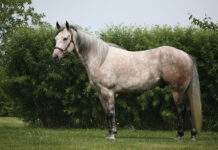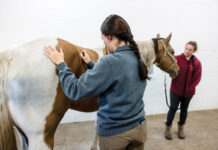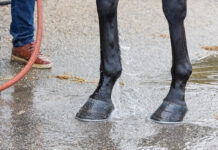
Recently Horsemen’s Laboratory was asked what other practices an owner can use to control worms in addition to deworming, especially for the worms that cause summer sores (habronema).
Other worms and practices that help control them:
- Pick up manure in stalls, paddocks and pastures as often as possible.
- Stalls at least every day and if possible 2 times a day.
- Paddocks at least 1 time a day.
- Pastures at least 2 times a week, best if more often in warm moist climates.
Be sure it is going to be hot and dry for several days when you mow or drag pastures and best to pick up manure before mowing or dragging. One should also strongly consider keeping horses off the pasture for 2-4 weeks. Since mowing and dragging pastures spreads the infective eggs and larvae over a much larger portion of pasture area making it hard for the horses to avoid eating them.
- Do not turn new horses into pastures before getting a fecal egg count processed.
- Do a fecal egg count after deworming before turning a new horse into your herd of horses to be sure there are not any adult worms still in the digestive tract producing eggs.
- Do periodic fecal egg counts to determine if the horse is a low, medium, or high shedder of worm eggs.
- Do periodic fecal egg counts to determine which horses and when they need to be dewormed.
Cleaning pastures at first sounds like a big task, however, most horses seem to divide pastures into two distinct areas; lawns and roughs. There are also pasture vacuums now available to be pulled behind a tractor that will actually vacuum your pastures.
- Lawns are where the horses eat.
- Roughs are where horses pass their manure.
Once the lawn and rough areas have been established you most likely will only have to pick up the rough area, as 90% of the worm eggs will be passed in those areas. Strongyle larvae general take 2-3 days (in the summer under ideal conditions 24 hours) to reach the infective stage and they do not leave the pile of manure they were passed in until they reach the infective stage.
Following the routine we have described for keeping stalls, paddocks, and pastures cleaned will have a very positive affect on reducing the number of infective eggs and larvae that your horses are exposed to. As opposed to deworming that only kills the worms that are adults.
In conclusion, picking up the manure piles on a routine schedule will reduce your horses’ exposure to a much higher number of worms than deworming. However, deworming is still an essential part of worm control. Therefore, following all the recommendations above will greatly reduce your horses’ risks of problems caused by worms.






